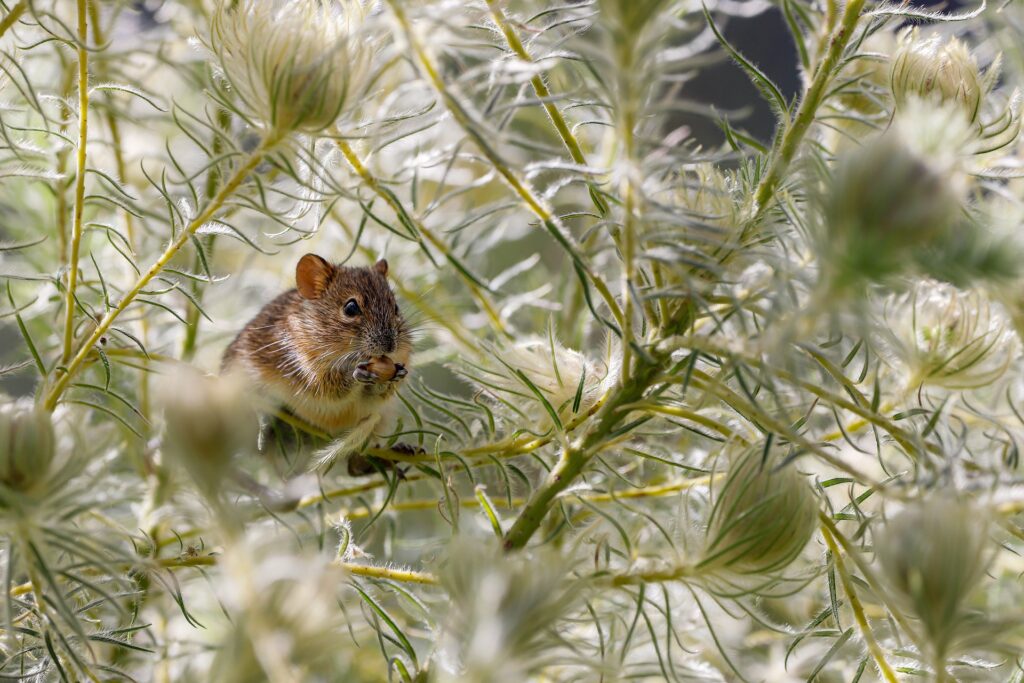When you were a kid you probably sang, “The ants go marching one by one, hurrah, hurrah,” but have you ever stopped and wondered why ants march one by one, or if there is any truth to the song? Turns out, there is some truth to the classic nursery rhyme.
Why Do Ants Follow Each Other in a Line?
The reason ants march in a line boils down to scented chemicals called pheromones. Ants use pheromones to communicate with other ants. Ants will produce pheromones to warn other ants about a nearby predator, to tell other ants to help defend the colony, or to share the location of a food source. So what does this have to with an ant’s tendency to follow the leader?
When a worker ant finds food, or some other beneficial resource, she will lay down trail pheromones as she is returning to the colony. That way, other workers will be able to leave the colony and use the trail to find the resource. As other ants follow the trail, they will release additional pheromones. This makes the trail even more detectable. The worker ants will follow this trail to a tee until the food source is completely consumed or no longer available.
How do Ants Find Food?
Ants have a powerful sense of smell and rely on sensitive olfactory receptors found on their antennae to locate food. Compared to many other insects, ants have 4 to 5 times as many receptors making them highly adept scavengers. It is the worker ant’s job to find food for the colony’s queens, males and young. Using their olfactory receptors, worker ants will forage for food and leave behind trail pheromones if a food source is found. It is not uncommon for a worker ant to travel up to 100 yards away from the colony to find food.
When it comes to food, different types of ants prefer different types of food. For example, Argentine ants prefer sweet foods such as aphid honeydew, honey, syrup, and sugar. Meanwhile, fire ants are omnivores and feed on other bugs, meats, and sweets. When outdoor food sources are scarce, ants will look for food indoors. This is why it is common to find ants in your kitchen or bathroom.
How to Get Rid of Ants
Because each type of ant is different in terms of behavior and habitat, it is best to use a pest control expert to get rid of ants effectively and efficiently. An Aptive service professional will conduct a thorough inspection of your property and determine the best way to eliminate the ant colony, or colonies, you have. They will also provide you with helpful methods and suggestions to help prevent ants from returning and re-establishing colonies.
Based on your needs, climate, and the environment, an Aptive professional will be able to develop a suitable treatment plan. Your Aptive service professional will treat areas on your property where ant control products can be used responsibly and effectively. Ants are resilient little creatures so additional treatments may be necessary. With Aptive’s dedication to service and commitment to the environment, you can rest easy knowing your home is our priority.
Ants’ Movements, Communication, and Collaboration
Have you ever observed how ants communicate and work together to achieve common goals? Ants are fascinating creatures known for their complex social behaviors and efficient communication systems. They communicate mainly through pheromones, which are chemicals that can convey different messages such as alarm, direction, and identification. This communication is vital when ant colonies coordinate their efforts in foraging or defending their nest. For instance, when an ant encounters a food source, it will return to the colony leaving a pheromone trail. This trail helps other ants to follow the path directly to the food source, demonstrating an impressive level of teamwork. Moreover, ants can move surprisingly fast, considering their size, and have the ability to scale various surfaces, including walking upside down on ceilings. Their ability to adhere to walls and move along them is due to the tiny claws and adhesive pads on their feet. Additionally, their structured colony roles allow them to work together cohesively, making the colony more efficient and increasing their chances of survival. The unity and precision seen in their lines or rows when traveling reflect a well-organized system of navigation and mutual aid.
Aptive’s integrated pest management and firm commitment to the environment separate us from other pest control companies. If you have a pest problem that needs controlling, call Aptive Environmental today.









